Whether we realize it or not we all talk to ourselves. Self-talk has a profound effect on our daily lives. We are the controllers of whether our self-talk is positive or negative. Negative self-talk can keep us from becoming who we truly want to be. It can keep us from trying new things. It can keep us from speaking up. Negative self-talk can even ensnare us in awful habits. Positive self-talk, on the other hand, can empower us! Honing positive self-talk can increase our confidence, effectiveness, and productivity. The challenge is to develop that positive self-talk. Our default is often negative. We asked our experts how positive and negative self-talk can affect on us in the workplace, and ways in which we can develop positive self-talk.
Answers From the Experts:
 Lyn Turknett, Co-founder and Co-chair, TLG
Lyn Turknett, Co-founder and Co-chair, TLG
How can self-talk affect us either positively or negatively at work?
Most of us are aware of a constant conversation going on in our heads. We talk to ourselves, and we script conversations with others. Sometimes the conversation is about our own inadequacy – “What if I forget what I was going to say in the presentation?” “Why in the world did I do that?” “What if my department doesn’t meet quota?” or “I don’t think I know enough to apply for that promotion.” We are often a lot more critical of ourselves than we are of others – most of us would never talk to a friend the way we talk to ourselves.
Those internal “worry about the future” messages can keep us from trying. Figuring out strategies for reframing or countering those thoughts is essential. Rumination about a mistake we’ve made can be equally destructive, keeping us focused on the past and not the task at hand. Research has shown that learning to talk to yourself in the third person, using your name, and third person pronouns, can dampen anxiety, create psychological distance from our own rumination, and keep us kinder to ourselves. This article from Vice contains some good tips.
In addition to our internal conversations about ourselves, we also often ruminate about others, and these often-judgmental ruminations can make us angrier and angrier and more and more upset. One of my favorite quotes is from Robert Kegan, who said, “We often see our lives as dramas in which we are cast ‘at the center as well-intentioned, beleaguered victim-heroes.” That dialogue often leads us astray. At work, it’s easy to assign motives to others that aren’t correct, and our tendency to focus on flaws in others can damage our relationships.
What tips can you offer to develop positive self-talk both personally and professionally?
1. First, I tend to think of developing a more realistic and helpful self-talk rather than simply a positive self-talk. Just trying to focus on “happy thoughts” often doesn’t work. There is some fascinating research on reframing public speaking fear. Researchers tested subjects who were being asked to speak in three different groups. One group was told to go with the anxiety they were feeling – just acknowledge that they were feeling anxious. Their speeches were rated by judges, and they did not do well. The second group was told to tell themselves, “I am calm.” They didn’t do any better than the first group. The third group was told to reframe the anxiety as excitement, to tell themselves, “I am excited about giving this speech.” Their speeches were much better!
2. Some of the most helpful tools for challenging and re-framing our self-talk come from cognitive behavior theories. The typical ways we talk to ourselves distort reality and exaggerate our discomfort. Cognitive behavior tools help us identify and challenge these distortions – our tendency to catastrophize and focus on the worst possible outcome, or our tendency to exaggerate our discomfort. For example, when someone gives us a report late again, we may say to ourselves, “I can’t believe this. I just can’t stand working with him.” In reality, you can believe it because it’s happened before, and you’d be better off to say something to yourself like, “It’s unfortunate that he keeps doing this, but it is what it is. I need to try to figure out some way to get him to meet my deadline – maybe I’ll set up a meeting to discuss it or try earlier reminders. Even if I can’t get the report on time, I need to not upset myself. I already have one problem – a disruption in my work. I don’t need the additional problem of agitation in my gut!”
3. Cognitive behavior techniques focus on challenging and changing our self-talk. We can also move toward more peace of mind using the wisdom of mindfulness and meditation. These lenses help us separate from our thoughts, to realize that the voice in our heads is not our “self,” and to distance ourselves from the chatter – to look AT our thoughts and not FROM them. The Untethered Soul has been helpful to many people, and the early parts of the book are especially useful in rethinking our relationship with our internal chatter. Steven Hayes wrote an interesting article in Psychology Today about the book, and provides interesting commentary about the key concepts, especially addressing those dealing with that voice. Josh Turknett has an article on our site entitled, “Why we should all be masters of mindfulness.”
 Bill Dickinson, D.Min, Senior Consultant, TLG
Bill Dickinson, D.Min, Senior Consultant, TLG
How can self-talk affect us either positively or negatively at work?
The great leader, Ghandi, once said: I will not let other people walk around in my mind with their dirty feet. And, so it is with me (most of the time).
Self-talk is an aid to my focus and confidence. Both for clarity and for energy, I will talk aloud and to myself. An operating premise for me is that humanity—each person—is wonderfully and beautifully created. We were born with innate dignity and value, and ours is to honor and cultivate that dignity. Indeed, we are broken. Yes, we experience dysfunction. And, many of us have been victims of countless forms of abuse. Nonetheless, this consultant doesn’t believe our innate dignity and value can be tarnished or harmed. What we need is to dig deep to celebrate our self-worth and to surround ourselves with people who both care for and support our well-being and esteem.
So, yes, I self-talk because I believe in my value as a human being, and sometimes I need my own self-care and motivation to persevere and contribute generously. May I encourage your own self-talk as one who is extraordinarily valued; and, in fact, loved.
 Nicole Harp, Ph.D., Senior Consultant, TLG
Nicole Harp, Ph.D., Senior Consultant, TLG
How can self-talk affect us either positively or negatively at work?
Our brains have one main job – and that is to keep us alive. They are constantly scanning the environment for threats to keep us out of danger. When we perceive something as safe, we are able to relax. We can be more creative, more collaborative, and maintain connections with others. On the other hand, when we perceive something as dangerous, our primary goal is protection. We will not be ready to create, collaborate, or connect.
When we speak negatively to ourselves, we create the conditions to feel as if we are under attack. Over time we actually come to believe those negative things, and it becomes an easy habit to maintain. As a result, day by day, we shrink our ability to be our best selves.
When you consider the conditions necessary for innovation and being able to adapt in today’s ever changing world, as well as being able to truly connect with loved ones and enjoy daily life, negative self-talk puts us at a huge disadvantage. We limit our ability to take risks, to be contributive, and to be fully self-expressed. Not to mention, it just doesn’t feel good.
What tips can you offer to develop positive self-talk both personally and professionally?
1. Many times we brush off things we do well as “no big deal” and instead, make a huge deal out of our mistakes. But successes come in all shapes and sizes. Look for them and celebrate your wins every time you recognize one, no matter how big or small. Your celebration can be as simple as a heartfelt “good job, Nicole” or a strong fist pump. Being intentional with this practice helps you to more easily discover successes, while at the same time, build a habit of positive self-talk.
2. Start a noticing notebook. Observe the things you say to yourself throughout the day and write them down. Also note context such as when and where it happens. Try to withhold judgment about what you’re noticing. Instead, just really pay attention and document it.
Once you put it down in writing, you can better analyze your self-talk and discern patterns. What stands out to you? Are you more likely to speak negatively at different times of day? What about in certain situations or around specific people? Is there a particular thing you criticize yourself about most often? After you note your patterns, spend some time thinking of ways to reframe your self-talk. Jot a list of possible alternatives. If you need ideas, think about how you’d encourage a child who is learning a new skill, or a best friend or loved one having a tough moment. Thinking ahead of time about what you can say instead, makes it easier for you to halt the negative and flip it to a positive right in the moment. Eventually, this more positive, empowered way of speaking to yourself becomes your new habit.
 Richard Stone, Chief Storyteller & TLG Strategic Partner
Richard Stone, Chief Storyteller & TLG Strategic Partner
How can self-talk affect us either positively or negatively at work?
If you just pause for a moment and pay a little attention, you’ll notice that there is a constant chatter in your head. The Buddhists call this “monkey mind.” Research by Cleveland Clinic found that what runs through our heads today is substantively the same kinds of thoughts that we had yesterday and the day before, and that a vast majority of these thoughts are negative in nature. This may be attributable to the fact that our brains are better tuned to negative input—if there’s danger we may have to prepare to fight or flee in a moment’s notice. This may also be attributable to a physiologic mechanism where “stories” of the past get wired into our neural pathways.
There’s a saying that “neurons that fire together wire together.” So, the more we repeat a thought or story or pattern of behavior, the more likely it will become subsumed into the routine brain and operate on autopilot. There’s another piece that I teach in my work and that’s that the body does not know the difference between a real event and an imagined one. So, when our minds go on autopilot and repeat negative stories, reimagining those events in the present, it’s creating a commensurate physiologic response that is no doubt stressful. In contrast, remembering positive experiences can have the opposite effect.
What tips can you offer to develop positive self-talk both personally and professionally?
There are a number of things that leaders and organizations can do to counteract the above phenomena. Start every meeting with appreciations about what’s going well as opposed to what’s broken and needs fixing. There’s an abundance of research indicating that this simple practice can have a positive impact on creativity and problem solving. Second, we must become mindful of the stories that are running automatically. Just noticing them is the first step. The second step is to ask ourselves if the story that we’re telling ourselves is indeed true. More likely than not it’s not true or relevant to the current circumstances. If not true, ask yourself, “What alternative story could I tell myself about this situation?” Finally, on a personal level, I believe we have accumulated a host of stories about ourselves and the world—some are treasures and some are trash. Harvest the treasures and ignore the trash. The more you do that the less power they’ll have over you.
 Patricia Thompson, Ph.D., Senior Consultant, TLG
Patricia Thompson, Ph.D., Senior Consultant, TLG
How can self-talk affect us either positively or negatively at work?
The way that you talk to yourself and narrate your experience has a profound impact on what you are able to achieve. If your self-talk is encouraging, you can better navigate through challenges, bounce back more effectively from setbacks, and have the confidence necessary to stretch yourself and grow. If, however, you are self-critical, you may shut down in the face of conflict, give up too easily, hold yourself back from trying new things. Even if you are someone who uses self-criticism as fuel to push you forward, it will still certainly affect your sense of well-being and create a lot of stress during your journey. Psychologist, Albert Bandura, said it best when he wrote “Self-belief does not necessarily ensure success, but self-disbelief assuredly spawns failure.”
What tips can you offer to develop positive self-talk both personally and professionally?
I could say a lot here, but to keep it short, here are a few tips. First, be aware of how you are talking to yourself. We are often so used to listening to the recordings that play in our mind, that we can become almost immune to them. To change your self-talk, you have to be aware that it’s happening. Second, challenge your self-talk. Instead of taking it as gospel truth, question it. Who says you’re always one way or another? Look for alternate, kinder things that you could say to yourself – even if it’s something like, “I’m struggling right now, but I can figure this out.” Last, consider where the self-talk came from. Often, the messages that shaped our self-concept occurred early in life. If they’re no longer serving you, recognize that they are a reflection of someone else’s beliefs or issues, and that you can let them go. As you continue to challenge your beliefs and intentionally create new beliefs about yourself, you’ll develop new habits of thought that will better support your goals. Just be patient and kind to yourself along the way!
 Tim Huff, Senior Consultant, TLG
Tim Huff, Senior Consultant, TLG
How can self-talk affect us either positively or negatively at work?
We talk to ourselves all the time; we only occasionally choose to actively listen. We’re constantly telling ourselves what we perceive in the world around us and how we should think of it (“go towards good things, avoid the bad things”), which leads to a self-judgement of how good or how bad we are with interacting with the world. All too often, we don’t pay enough attention to what this self-judgement saying, and when we do, it’s usually when we’re judging ourselves harshly. In our professional lives, this often shows up when we’re under stress and listening to our negative self-talk to try to avoid an embarrassment or reduce a pending pain.
“I’m totally going to fall on my face with this presentation.”
“No way I’m going to figure out the budget; I’m so bad at finances.”
“Zero percent chance I’m going to land that big contract. I’m terrible at selling.”
Although it’s very helpful to have self-awareness of the areas in which we’re not strong, we sabotage ourselves when we allow this kind of self-judgement to creep into our consciousness. We focus on the failure, and too often, the failure becomes a reality. Conversely, if we were to actively listen to ourselves when our self-judgement suggests a success or a positive opportunity, we might see a very different result.
“I’m going to knock their socks off with this presentation!”
“Finances may not be my strong suit, but I’m going to totally figure out this budget problem.”
“This contract is going to be my biggest win yet; I’m going to give it my all!”
Choosing to listen to this kind of self-talk greatly improves the changes of success and could make all the difference!
What tips can you offer to develop positive self-talk both personally and professionally?
- One of the best tips I was given on positive self-talk a few years ago was to talk to yourself like you would to someone you love (Brene Brown). That helped eliminate most of the negative things I would say to myself and allowed room for positive self-talk.
- Don’t under-estimate the power of gratitude! I’ve found the more I’m thankful for the many incredible things in my life, the more positive and optimistic I am in how I talk to myself.
- Keep everything in perspective and don’t dwell on mistakes. When I’m tempted to beat myself up over a failure, I’ve found it helpful to remember what’s most important to me and where the failure falls in that list. And regardless where it falls, I make an effort to learn what I can from the mistake, and then put it in the rear-view mirror. It’s helpful to learn to let go!
Meet the rest of our team!

